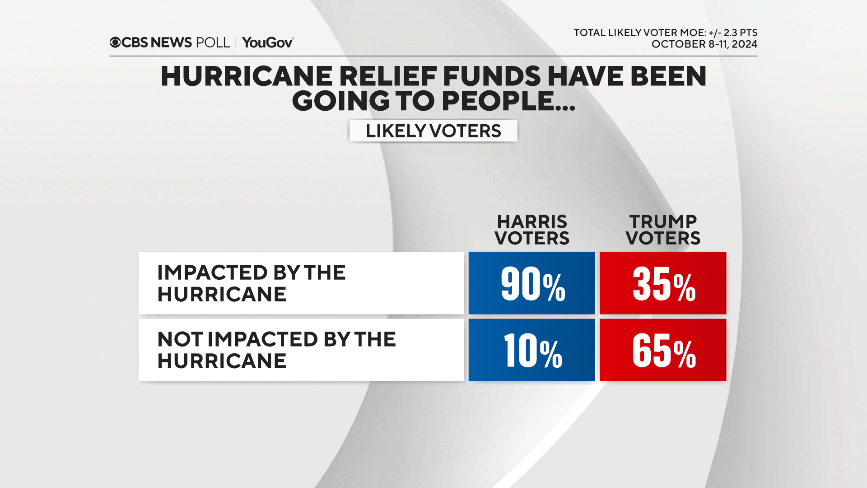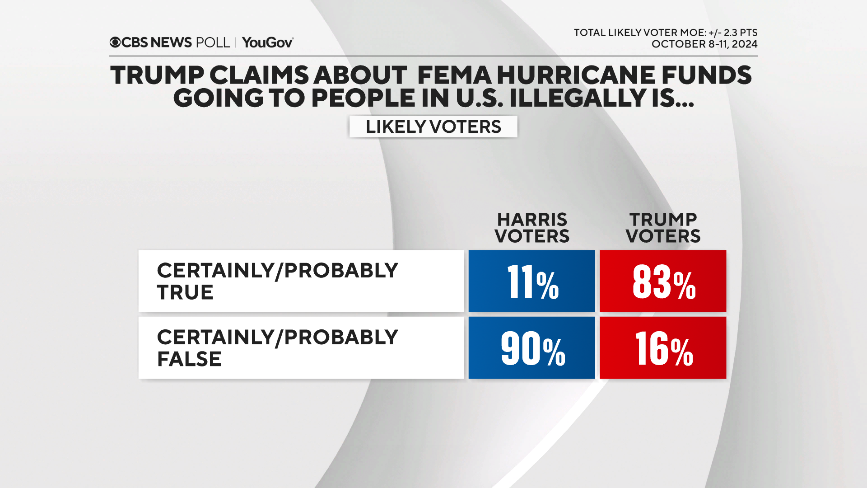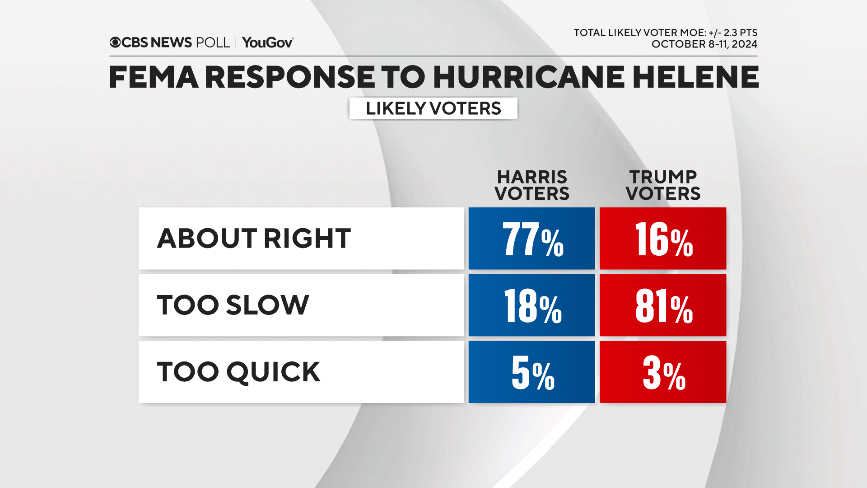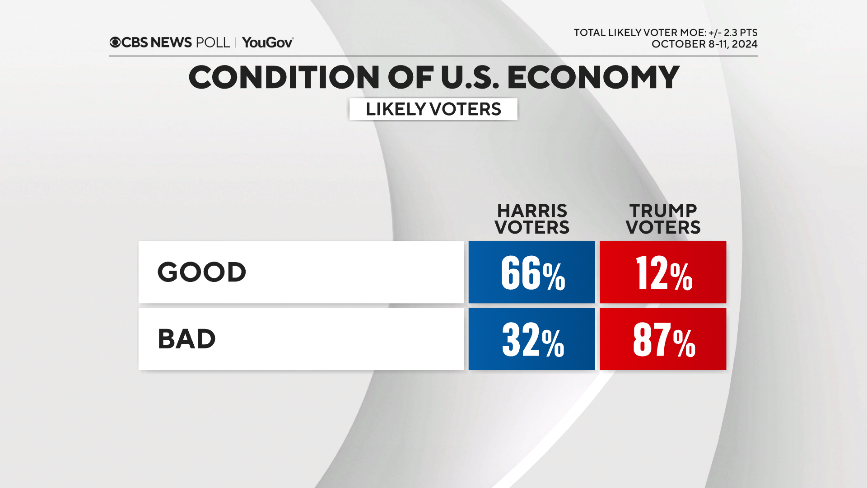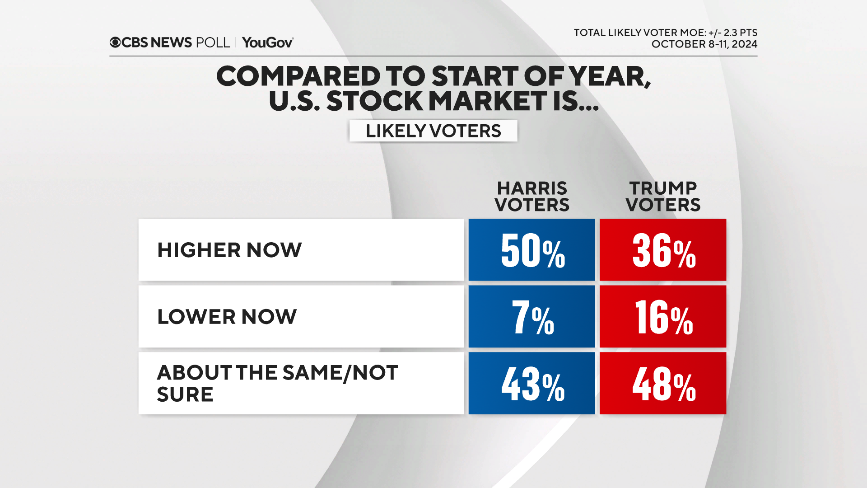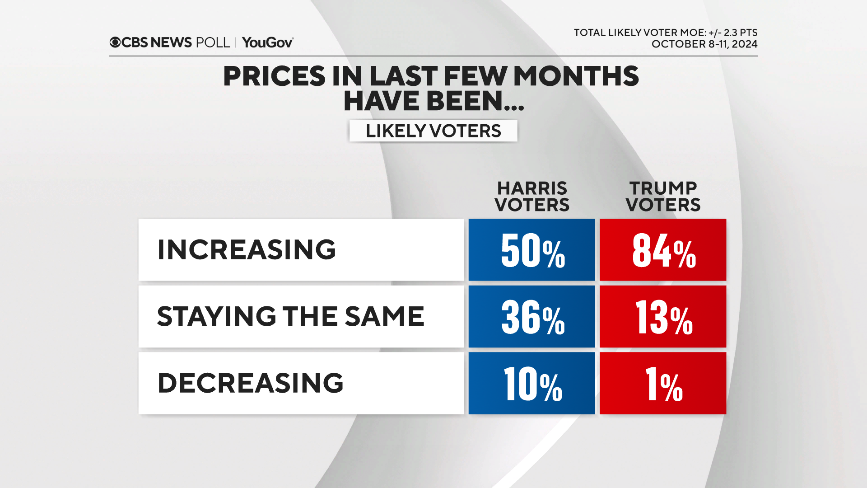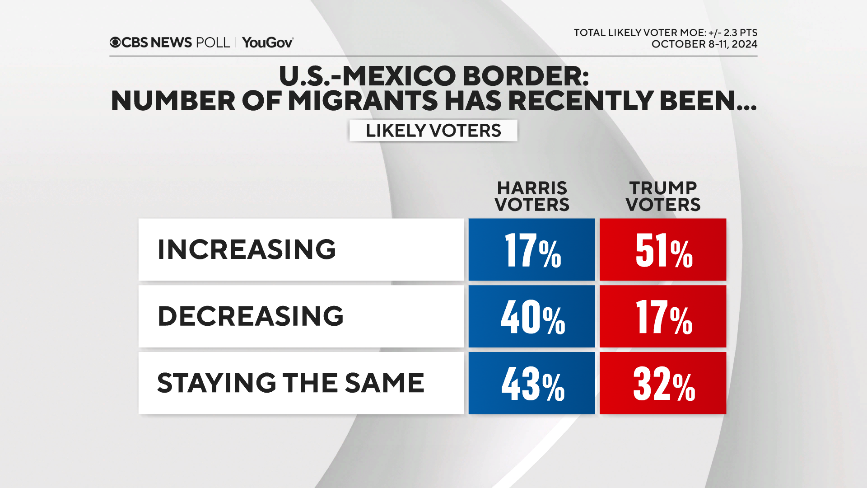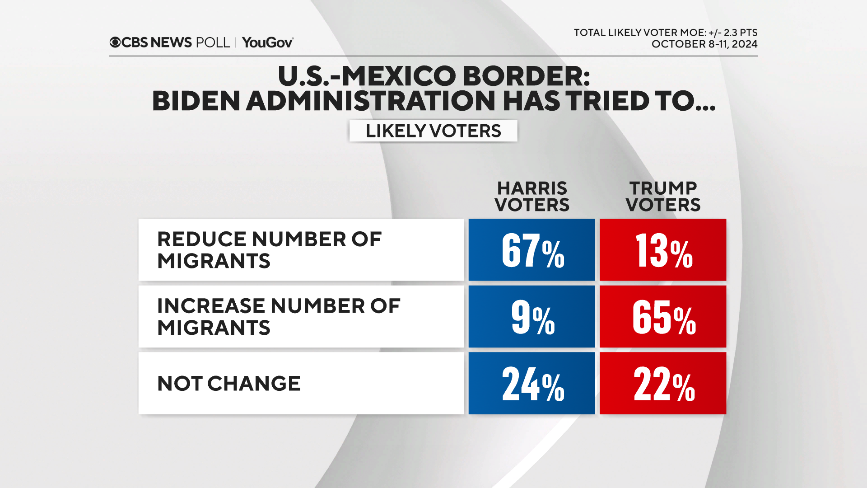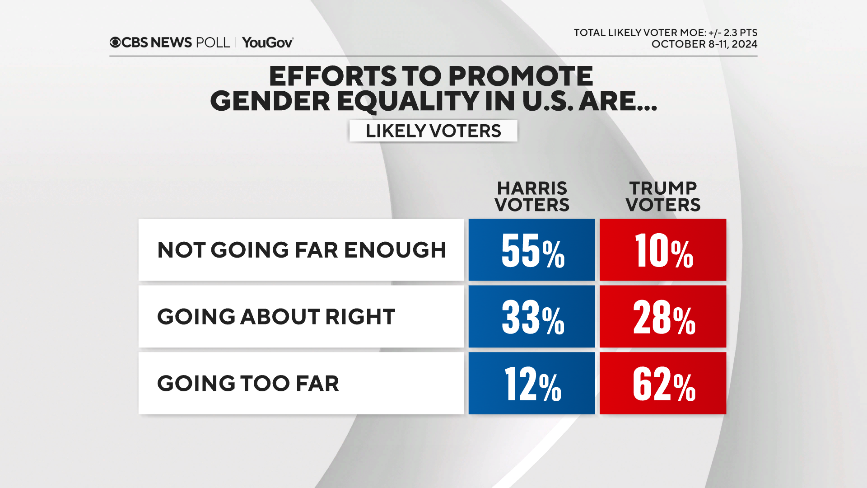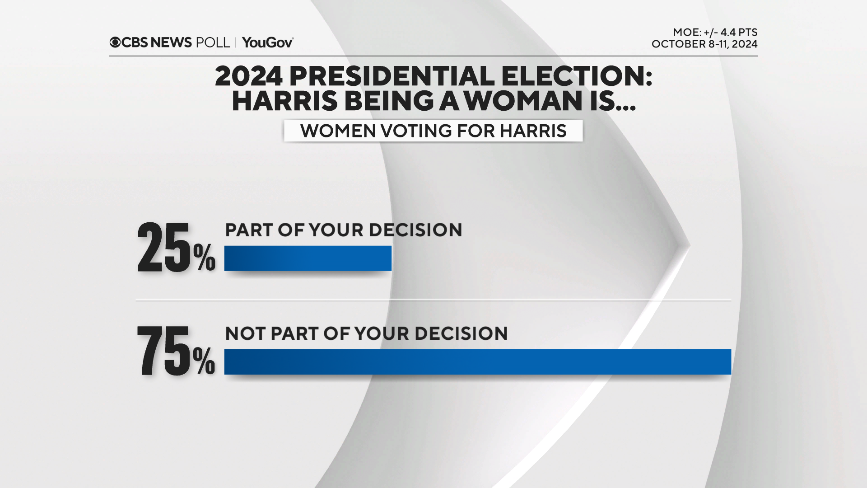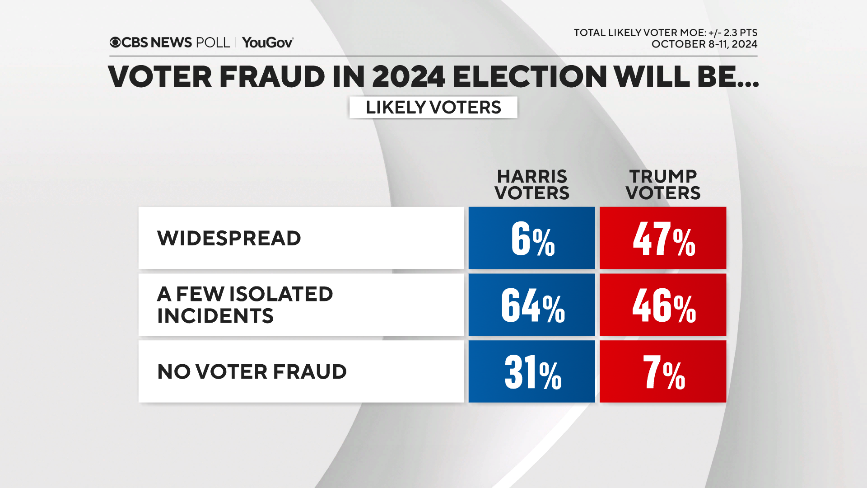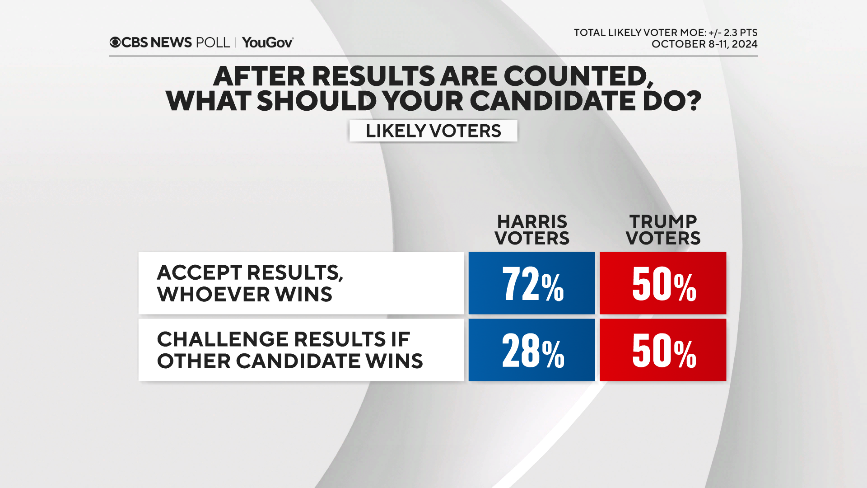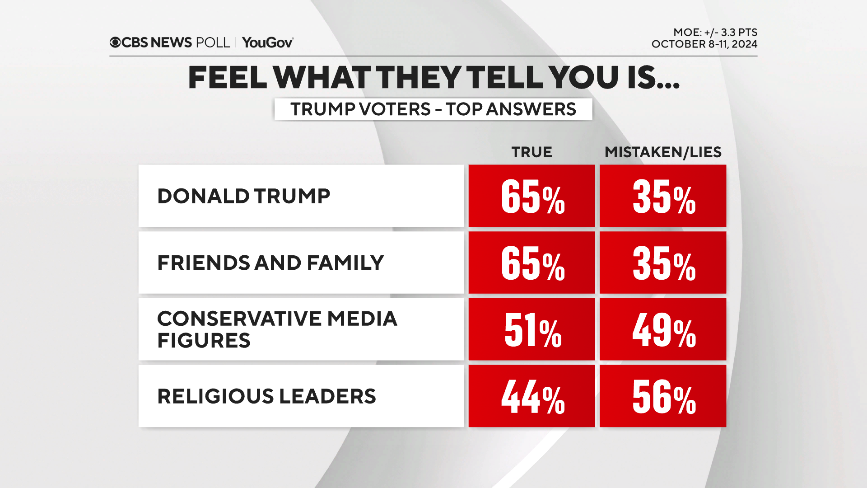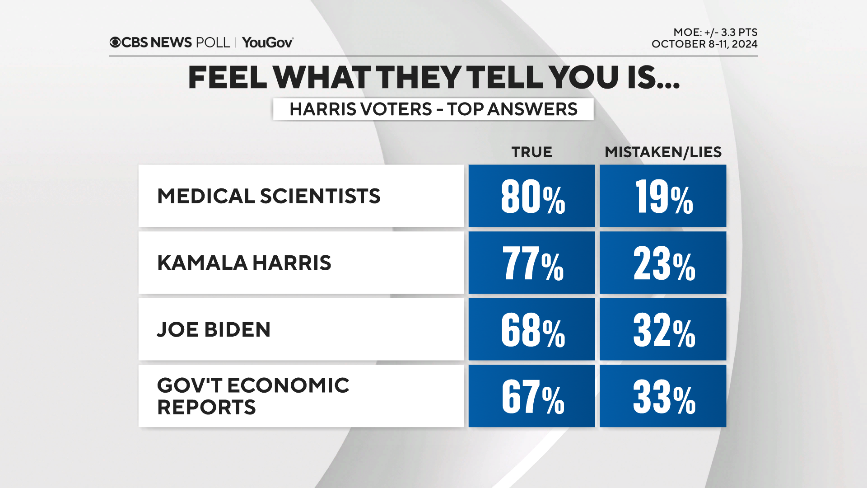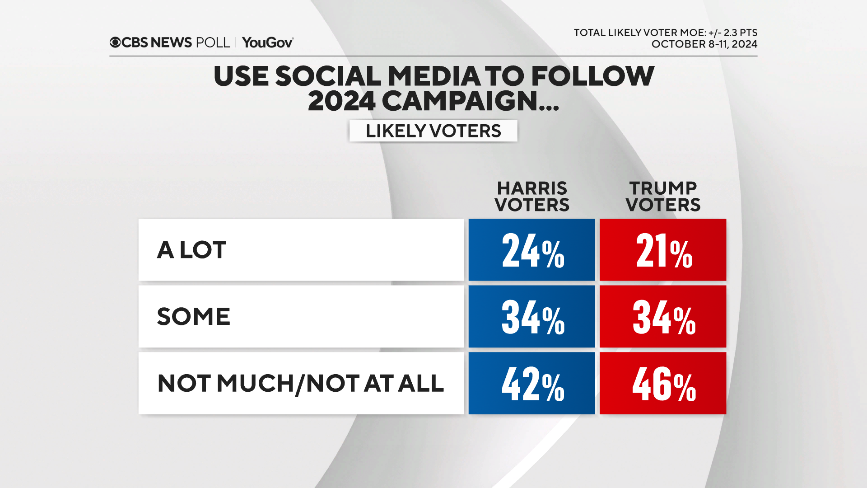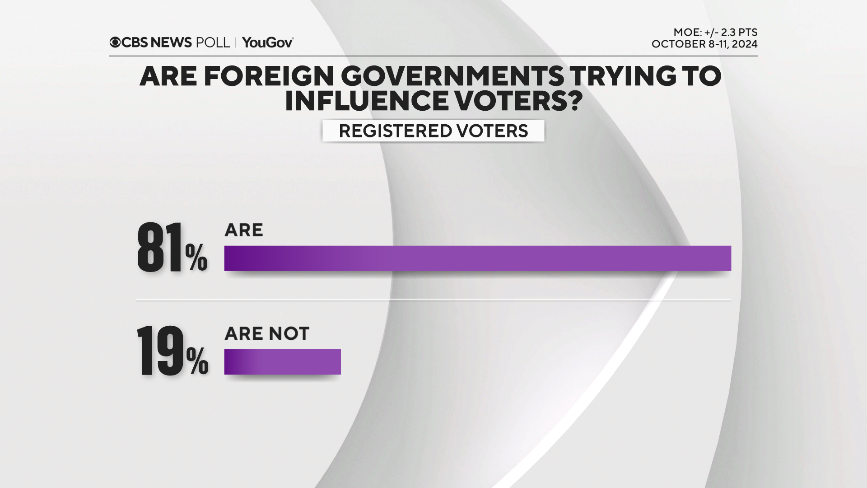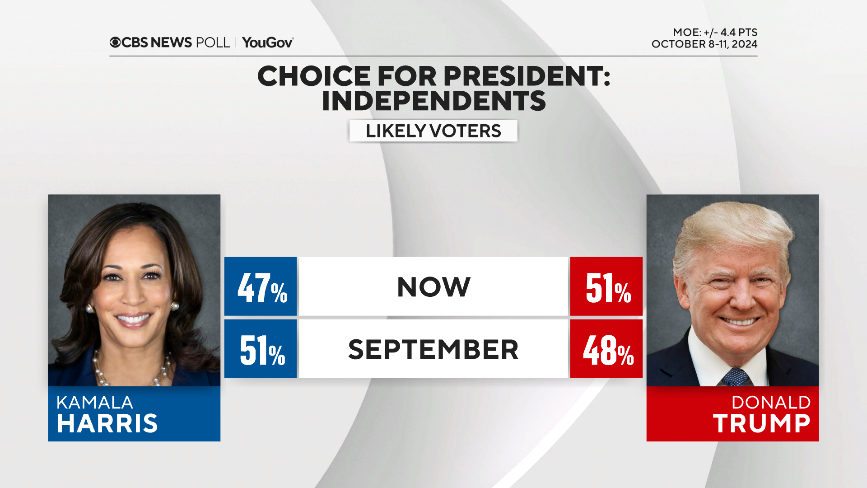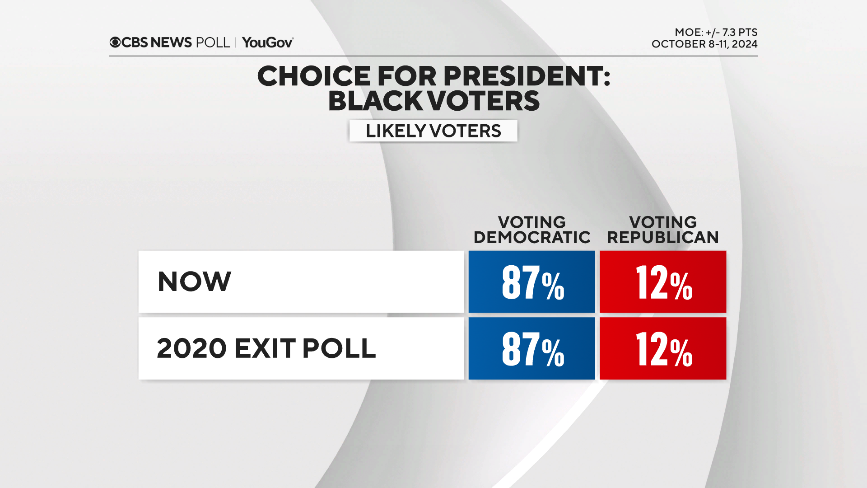The 2024 presidential contest between Kamala Harris and Donald Trump is more than just two ideologies competing over what should happen. It’s two groups of voters that look out at the country and don’t even agree on what’s happening right now.
Views about hurricane relief are just one example of many. To most of former President Donald Trump’s voters, that relief isn’t going to the people impacted. To Vice President Kamala Harris’ voters, it is.
Trump’s voters view the U.S. economy as bad, while most Harris voters view the economy as good. Trump’s voters say U.S.-Mexico border crossings are increasing now. Harris’ voters are more apt to say crossings are down than up. As voting gets underway, far more Trump voters anticipate widespread fraud. Harris’ voters do not.
And Trump’s voters — especially the men among them — see themselves in a nation where gender equality efforts have gone too far. For most Harris voters gender equality efforts in the U.S. haven’t gone far enough.
There is at least one thing in common though: each side says they use but don’t trust social media. They say that it makes it easier for them to find people they agree with (perhaps reinforcing already-held beliefs) but also harder to tell what’s true.
Against that backdrop, an already close, effectively even contest draws even tighter. Trump is one point closer to Harris nationally than last month, the decisive battleground states also remain effectively even, a mere one point apart now.
What’s happening with hurricane relief?
In the view of most Trump voters, hurricane relief is mainly going to people not impacted by hurricanes, and among them, there’s wide belief in the claim that FEMA funds are going to people in the U.S. illegally.
Most Harris voters think those claims are false, that funds are going to people impacted and relief efforts are moving about the right speed.
What’s happening in the economy now?
On the economy, which often reveals partisan-driven differences, Trump voters overwhelmingly call it bad at the same time most Harris voters call it good.
Even if that’s somewhat subjective, there are differences between the camps in what they see on other related measures. Trump voters are less apt than Harris voters to say the stock market is up for the year and less likely to say the U.S. has added jobs of late, though for voters who express a direction, the net balance in both camps is a higher market and more jobs. The perceived implications of that are apparently different, however.
Harris voters are also less likely to think prices are increasing.
What’s happening at the border now?
On the U.S.-Mexico border, Harris’ voters are more inclined to think the number of migrant crossings is decreasing. But Trump’s voters are relatively more apt to say crossings are increasing today and that the Biden administration has in fact tried to increase, not reduce, them.
Illegal crossings at the southern border in September reached their lowest levels since the beginning of the Biden administration.
When we follow up with voters who think President Biden tried to increase crossings, and ask why, the top answer picked by Trump voters is that they suspect there are efforts to get migrants to vote illegally in U.S. elections.
Gender differences and equality efforts
There are big differences evaluating some cultural or social shifts, which may help partly explain the gender gap, however large it ends up being:
Most Trump voters see efforts to promote gender equality in the U.S. going too far (men backing Trump especially think so) while Harris voters think those efforts aren’t going far enough, especially the women backing her.
For a quarter of women backing Harris, the fact that she is a woman is a part of their decision-making.
For 10% of men backing Trump, the fact that Harris is a woman is a factor in theirs.
What may happen with the election system?
As voting begins in many states, voters generally trust their states’ election system, but Trump’s voters are much more skeptical.
Only a quarter of voters think there will be widespread fraud. Harris voters don’t think so, but nearly half of Trump voters do.
Amid all of this, half of Trump voters want him to challenge the election results if Harris wins. Most of Harris’ backers want her to accept the results, no matter who wins.
Who do you trust for information?
Bigger picture, on who voters trust for truthful information: For Donald Trump’s voters, Trump himself is a top source as much as their own family and friends, though they don’t show overwhelming trust in a lot of sources presented. Trump does rank more highly than other conservative media figures generally; medical scientists in general; and far more than government economic reports.
Harris’ voters, in turn, trust Harris even more than Trump voters trust Trump, but Harris backers are also relatively much more trusting generally of sources, including medical scientists and government reports.
Both sides share a mistrust of corporate leaders and social media influencers, and each side says they use social media to follow the campaign at about the same rate.
And something else supporters of the candidates share: the overwhelming suspicion that foreign governments are trying to influence the election. Most also believe that foreign governments are supporting threats or attempts to harm U.S. presidential candidates.
Voters overall tend to suspect that China and Iran want Harris to win and that Russia wants Trump to win – but within those numbers, each side thinks those foreign countries want the other candidate to win. Trump voters think Russia wants Harris; Harris voters think Russia wants Trump.
What’s happening with voter groups?
Amid all this, it is perhaps little surprise that neither candidate can effect large swings. The national preference between the two is still essentially even, as it has been since August, with a one-point move back toward Trump both nationally and in the battlegrounds composite. Behind that, independents have shifted a little now toward Trump.
Black voters are still voting heavily Democratic, as in past years, right now supporting Harris at the same rate as they did Mr. Biden in 2020. However, the likelihood of turnout for Black voters lags that of White voters, suggesting perhaps there is more for Harris’ campaign to do in activating these voters.
Neither candidate has the edge on the ability to handle a federal response to natural disasters. Just about a third of voters have a lot of confidence in either Harris or Trump on this.
Voters think Harris is more likely to make access to affordable health care better rather than worse, while more think Trump would make access worse.
On abortion: when voters say this is a major factor, Harris enjoys some of her widest margins over Trump. However, over the course of the campaign, the number who rank it as a major factor has not grown.
Also, her campaign’s argument that Trump will try to ban abortion nationally has not resonated with most voters outside of her own party. Most independents, along with Republicans, think Trump will leave the matter of abortion to the states.
On taxes, Trump has the advantage. Voters are twice as likely to say Harris will make their taxes go up rather than down — and this is true among all income groups. Voters are more divided on what will happen with their taxes under Trump.
This CBS News/YouGov survey was conducted with a representative sample of 2,719 registered voters nationwide interviewed between October 8-11, 2024. The sample was weighted according to gender, age, race, and education based on the U.S. Census American Community Survey and the U.S. Census Current Population Survey, as well as past vote. Respondents were selected to be representative of registered voters nationwide. The margin of error for registered voters is ±2.3 points. Battlegrounds are AZ, GA, MI, NC, NV, PA, and WI.



